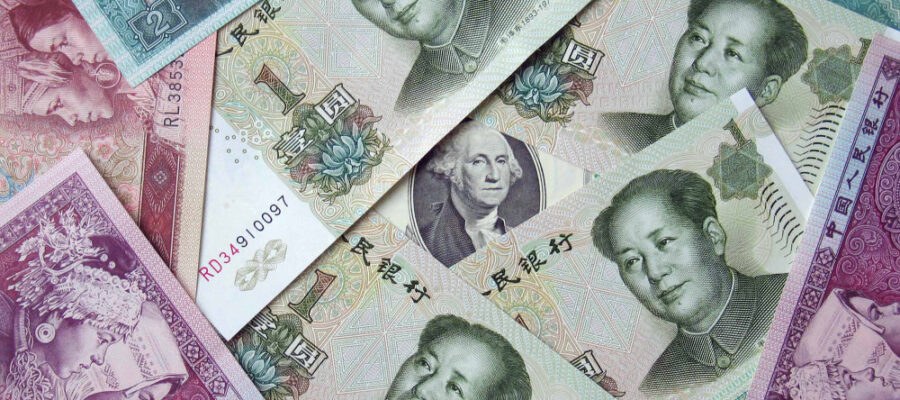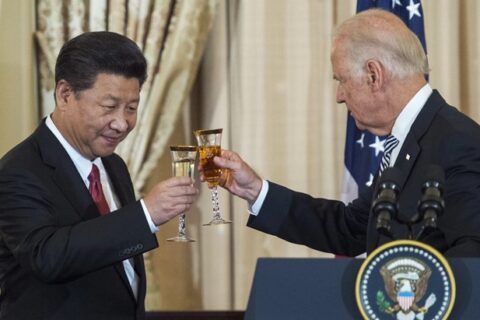China is the only major economy to report economic growth in 2020. This has been used alternatively to say that the intense lockdowns China did in the first place were what was necessary (by those who love authoritarianism) and by others to say the Chinese virus is fake. The Wuhan parties in August 2020 indicate some support for the latter, or at least that the virus was not as serious as they were made out to be.
China’s economic gains aren’t surprising. Aside from the fact that they had greater notice about the virus, there’s also the fact that China is polluting far more than any other country and more than the rest of the developed world combined. I suppose China is immune to the emotional cries from autistic Swedish teenagers about pollution.
So, what does China’s economic and pollution growth mean for the rest of the world? Well, nothing good. Ignoring the environmental impact of the pollution, the economic ramifications could be terrible, particularly when we look at the ratio of trade countries have with China versus the U.S.
Currently, the economic hegemony is roughly a 50/50 split where either China or the U.S. is the main trade partner with any random country. All indicators demonstrate this imbalance will tip in China’s favor soon. Some of these shifts make sense, like China trading more with the ASEAN countries, (and yes, that’s an acronym not a misspelling of “Asian”). It’s also true for most of Africa, Brazil, Russia, and even Europe.
China is also making inroads in Iran, with a 25 year trade deal involving hundreds of billions of dollars of Chinese investment in Iran for oil. On one level, the intensifying Chinese relationship with Iran is a good thing because it realistically means the U.S. is less likely to invade Iran (who would want to run the risk of Chinese nationals hit with collateral damage?). On the other, this just means even more Chinese dominance worldwide and ensures another superpower has easy access to oil. Also, as oil is a finite resource, China having access to this supply means the U.S. does not, which could impact the long-term cost of oil in the U.S.
There’s an interactive chart here that shows shifting trade dominance over time. It is important to keep in mind how quickly these changes have taken place. When China joined the World Trade Organization in 2001, 80% of countries had a larger volume of trade with America than China. By 2018, that figure was down to a little over 30% with 2/3 of the countries trading more with China than the U.S. and 90 countries in the world trading more than twice as much with China than the U.S.
So, what does all this mean for you, me, and the American economy? Well, as you can probably guess, it means the American economy will get weaker in both relative and real terms. That’s the immediate impact of countries trading more with China than with the U.S. However, there is a bigger issue which is the global reserve currency.
With more countries trading with China, there’s a greater demand for the currency of China (whether we’re talking the yuan or a potential Chinese cryptocurrency). This inflates the value of Chinese currency. Now, that’s obviously true in terms of how individual actors (including banks, international businessmen, and currency speculators) will react to the shifting trade imbalance. It does not address the elephant in the room which is that international transactions are currently done with U.S. dollars. If most countries in the world trade more with China than with the U.S., why would the global reserve currency stay the U.S. dollar?
While the U.S. may imply they’ll invade or conduct a color revolution in countries that get off the U.S. dollar, that threat is becoming ever more laughable. The ever-gayer military and recent CIA advertisement featuring a mentally ill woman demonstrates this clearly. So, if the U.S. dollar stops being the global reserve currency, what happens to the U.S. economy? Well, the dollar will lose much of its value. It could lose 35% of its value (it’s also important to note that article was suggesting it would both lose its value and lose its status as reserve currency, so it isn’t clear if that is the total estimated loss or not).
With the U.S. dollar devalued, it means each U.S. dollar purchases fewer goods and resources internationally. Now, this also should mean that U.S. goods will be sold in greater numbers because the U.S. dollar is weaker (this is part of the reason why some countries, China included, occasionally will intentionally devalue their currency), but that assumes the U.S. has goods folks want to purchase. Between industries moving outside the country, increasing restrictions on pollution for businesses within the U.S., and other similar factors, we probably will not see a proportional increase in the sale of U.S. goods.
There’s also the concern that as the U.S. economy becomes less of a hegemon, the U.S. will not be able to sell Treasury Bills/bonds anymore internationally, which will have further ramifications. That is one of the ways the U.S. finances its various boondoggles and programs. With less demand for T-bills, there’s a need for more taxes and or printing of money. Again, what those long-term ramifications are is hard to say (with some hopeful economists asserting they would have little to no impact and would increase savings in the U.S.).
There are many people alive who remember what it was like when the U.S. was the undisputed world hegemon. The Marshall Plan and like programs ensured countries would trade with the U.S. and boosted living standards for Americans because of all this trade. This is precisely why your parents and grandparents have no way to comprehend what is coming. We are truly entering a new period unlike anything felt in personal memory. With all these unknowns, it’s advisable to control what you can. Learn to grow food on your land, acquire skills and hard currency that are always in high demand, and build up your local community. There’s a good chance we’re going to face another Great Depression soon and we won’t be able to bomb and build our way out of it, so you’ve got to focus on learning how to survive it.
A Southern man trying to make a good Southern plan.
Deo vindice!






B .b.b. but we have the Constitution.
I believe China was built up to be knocked down, this would justify the invasion (oh noes they are powerful and holocoasting boogers/tibetans) and globo homo enrichment of one of the worlds last sovereign nations. It would also aid the great reset agenda if they bricked the chinks manufacturing ability, better get used to pods and bugs! Probably why the terrorists in business suits gave away Americas manufacturing to them…